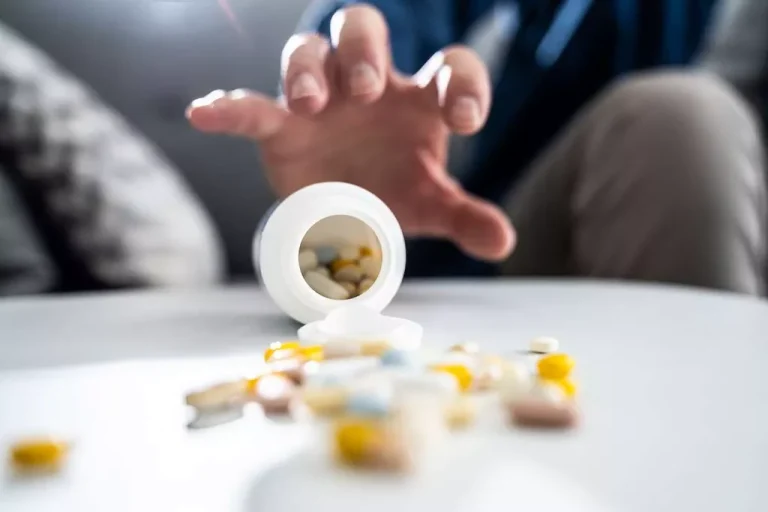
Why You Need to Hire an Expert Website Development Agency?
26/12/2023
The Complete Guide to Website Development Course
07/01/2024
This will help reduce your nose’s contact with the drink and make it less likely to trigger a sneeze. If you find that warm drinks make you sneeze, try chilling them before you drink them. This will help to soothe the mucous membranes in your nose and prevent them from swelling and triggering a sneeze. In addition, beer is often brewed with hops, comprising a compound called lupulin.
How does alcohol affect allergies?
To reduce the likelihood of sneezing from red wine, some experts recommend choosing wines with lower levels of tannins. This can be done by avoiding heavily-oaked wines or those with a higher alcohol content. The symptoms of a beer allergy are similar to those of other allergic reactions and can include abdominal pain, bloating, chest tightness, hives, wheezing, and chest pain. These symptoms can occur almost immediately after consuming beer and should be considered severe and potentially life-threatening. Paying attention to which beverages cause symptoms can help people manage their alcohol intolerance. Researchers are exploring the complex relationship between alcohol and allergic reactions.

Histamines
It is important to seek medical advice as soon as possible if you experience any of these symptoms after drinking wine. A doctor will be able to determine the sneezing after drinking alcohol cause of your symptoms and provide appropriate medical treatment. In some cases, it may be necessary to discontinue drinking wine altogether to avoid further complications.
- The sulfur compounds in red wine can irritate your nasal passages, resulting in inflammation and swelling that can lead to sinus issues.
- If you are experiencing any of these symptoms after consuming wine, it could be because you are allergic to one or more components found in the beverage.
- Consulting with a healthcare professional is recommended if one frequently encounters symptoms of histamine intolerance.
- In terms of treatment, medications such as antihistamines can help reduce the severity of symptoms in some cases.
Q 1: What is alcohol allergy?
In very rare cases, sulfites may cause anaphylaxis, a severe allergic reaction. However, the sneezing caused by drinking beer could also be due to an interaction between beer or alcohol and any medication you’re taking. It is important to determine whether you are allergic to a specific ingredient in the beer or if it is due to an interaction with medication. If you are experiencing any of these symptoms after consuming alcohol and you are unsure of the cause, it is recommended to raise your concerns with your doctor. The onset of symptoms is usually noticed by slightly more laboured breathing after consuming alcohol.
Rashes from skin contact with alcohol can happen but are very rare and it is not known why this occurs. We use a pharmacist-formulated blend of Glutathione, Dihydromyricetin, Cysteine, L-Theanine, & B Vitamins to stop alcohol flushing before it can begin. Instead, they state that the data indicate that alcohol interacts with a component involving the body’s allergic response. Genuine alcohol allergies, in which people only react to the alcohol, are much less frequent.
Why Do I Sneeze While Drinking Wine?
Additionally, adding foods with anti-inflammatory properties to your diet can help reduce any irritation caused by red wine consumption. If you have any of the above-mentioned symptoms after consuming alcohol, it is best to stop drinking and seek medical help if necessary. Beer also contains histamines which could cause a reaction in some people, including sneezing and stuffy nose after drinking. The fermentation and ageing process of making wine directly produces histamines, the chemicals your body makes in response to allergy triggers. This leads to allergy symptoms like a runny nose, stuffy sinuses, and sneezing.

Can the sneezing reaction worsen over time?

But even with our guide on how to get rid of a hangover, you may want to dig deeper beyond the simple remedies and solutions to determine whether there is a real cause for concern here. Read on to uncover the science behind the stuffy nose phenomenon as well as key strategies to prevent it from becoming an inevitable side effect of drinking alcohol. However, some people develop allergy-like symptoms, such what is alcoholism as an itchy throat and nasal congestion, in response to the sulfites in wine. To avoid adverse reactions, sensitive individuals should reduce their exposure to sulfites. Beer contains many ingredients, including water, malt barley, brewer’s yeast, hops, and assorted flavorings. While true beer allergies are rare, it is possible to be allergic to one of these ingredients.
Alcohol Intolerance Can Contribute to Nasal Congestion After Drinking Alcohol
If you react to the tannins in red wine, then you might find it easier on your system to choose white and sparkling wines. Some people are super sensitive to all wines and get on better with another low-tannin alcohol such as gin, vodka, rum, or tequila. Look for wines with lower histamine levels, usually white wines, organic wines or sparkling wines.
Some people experience anxiety or panic attacks along with their hangovers the day after consuming too much alcohol. This hangover anxiety, or “hangxiety,” can arise for many reasons, including mild withdrawal from alcohol, interrupted sleep, poor dietary choices, and shame or regret. Talk to a healthcare provider when you are considering quitting if you have a long history of heavy drinking or alcohol use disorder. When people have anxiety, drinking alcohol might seem like an effective way to cope. And though the immediate effects might lessen some of the worry or dread you feel, this change is short-term, and the long-term consequences can make matters worse. Just as alcohol consumption causes a wide range of effects on the body and mind, so does the period of withdrawal.

